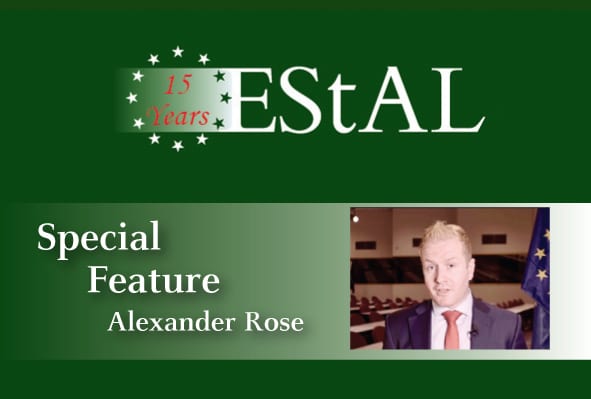Introduction This article reviews two judgments concerning a claim that compensation does not constitute State aid and a complaint that the Commission had failed to act, respectively. The latter case is particularly interesting because it is probably the only judgment in the past decade or two that the Court of Justice has actually upheld a claim that the Commission breached […]
State Aid Law
Blog
State Aid Uncovered Blog
In Lexxion’s State Aid Uncovered blog, Prof. Phedon Nicolaides publishes weekly critical analyses of recent State aid judgments and decisions. Each post presents the key points of a court judgment or EU Commission decision, places it in the context of similar case law or practice, assesses the underlying reasoning and highlights any inconsistencies or contradictions.
Guest contributions from other State aid experts will also be published on the blog at irregular intervals to complement the content of the blog posts.
26. November 2024 |
State Aid Uncovered
by Phedon Nicolaides
19. November 2024 |
State Aid Uncovered
by Phedon Nicolaides
Introduction In June 2016, the Commission received a complaint from the Medical Chamber of Slovenia – a professional organisation of private medical doctors and dentists practicing in Slovenia – concerning alleged State aid granted by Slovenia to public hospitals and public healthcare centres. With decision SA.45844, the Commission recently decided that the public funding of public hospitals and healthcare centres […]
12. November 2024 |
State Aid Uncovered
by Phedon Nicolaides
Introduction The Commission’s block exemption regulations and the guidelines do not cover exhaustively State aid for all conceivable policy objectives. For example, there are no specific rules on investment subsidies for large enterprises in non-assisted regions. This does not mean that Member States may not grant State aid to a large company to manufacture a product they consider important. Rather, […]
5. November 2024 |
State Aid Uncovered
by Phedon Nicolaides
Introduction France notified a measure to grant State aid to ProLogium for the implementation of the Promotheus R&D project which concerned the development of solid-state batteries [SSB] for electric vehicles. ProLogium is a large enterprise with 758 employees. The Commission approved the measure in decision SA.106740.[1] The aid measure has several unusual features. First, ProLogium committed to disseminate the scientific […]
29. October 2024 |
State Aid Uncovered
by Phedon Nicolaides
Introduction Member States are free to determine what the regard as a service of general economic interest [SGEI]. The Commission may only check whether the definition is free of manifest error and that any compensation that is provided conforms with the conditions laid down in the 2012 SGEI package. Member States commit a manifest error when they designate as SGEI […]
29. October 2024 |
State Aid Uncovered
by Phedon Nicolaides
Introduction Taxes are burdens on undertakings. They cannot be State aid. However, tax exemptions or reductions can be State aid if they cannot be objectively justified. When a tax measure is in the form of a reduction or exemption, it is relatively easy to establish its selectivity in the meaning of Article 107(1) TFEU. However, when a tax is levied […]
16. October 2024 |
State Aid Uncovered
by Phedon Nicolaides
The annual report on the 2023 EU budget by the European Court of Auditors finds that in the field of State aid national authorities wrongly supported ineligible costs. Errors in public procurement and State aid were the largest source of irregularities. Main findings concerning public procurement and State aid “The risk of error is high for expenditure subject to complex […]
15. October 2024 |
State Aid Uncovered
by Phedon Nicolaides
Introduction On 26 September 2024, the Court of Justice [CJEU] delivered four judgments in four related cases: C-790/21 P, Covestro Deutschland v Commission C-792/21 P, AZ v Commission C-794/21 P, Germany v Commission C-795/21 P, WEPA Hygieneprodukte v Commission All cases concerned appeals against the corresponding judgments of the General Court by which it dismissed the actions for annulment of […]
8. October 2024 |
State Aid Uncovered
by Phedon Nicolaides
Introduction On 5 September 2024, the Court of Justice of the EU [CJEU] delivered two judgments on the two most frequent procedural issues on State aid: Who has standing to challenge a Commission decision and when the Commission is obliged to initiate the formal investigation procedure. These two issues are closely connected. Those whose interests are harmed by State aid […]
1. October 2024 |
State Aid Uncovered
by Phedon Nicolaides
Introduction In some Member States, the provision of potable water to households is a “closed” sector. This means that public funding of the operations of the water provider does not constitute State aid. However, according to the case law of the Court of Justice, for a sector to be considered closed to trade and competition it is not sufficient that […]
19. November 2024 |
State Aid Uncovered
by Phedon Nicolaides
Introduction In June 2016, the Commission received a complaint from the Medical Chamber of Slovenia – a professional organisation of private medical doctors and dentists practicing in Slovenia – concerning alleged State aid granted by Slovenia to public hospitals and public healthcare centres. With decision SA.45844, the Commission recently decided that the public funding of public hospitals and healthcare centres […]
12. November 2024 |
State Aid Uncovered
by Phedon Nicolaides
Introduction The Commission’s block exemption regulations and the guidelines do not cover exhaustively State aid for all conceivable policy objectives. For example, there are no specific rules on investment subsidies for large enterprises in non-assisted regions. This does not mean that Member States may not grant State aid to a large company to manufacture a product they consider important. Rather, […]
5. November 2024 |
State Aid Uncovered
by Phedon Nicolaides
Introduction France notified a measure to grant State aid to ProLogium for the implementation of the Promotheus R&D project which concerned the development of solid-state batteries [SSB] for electric vehicles. ProLogium is a large enterprise with 758 employees. The Commission approved the measure in decision SA.106740.[1] The aid measure has several unusual features. First, ProLogium committed to disseminate the scientific […]
29. October 2024 |
State Aid Uncovered
by Phedon Nicolaides
Introduction Member States are free to determine what the regard as a service of general economic interest [SGEI]. The Commission may only check whether the definition is free of manifest error and that any compensation that is provided conforms with the conditions laid down in the 2012 SGEI package. Member States commit a manifest error when they designate as SGEI […]
29. October 2024 |
State Aid Uncovered
by Phedon Nicolaides
Introduction Taxes are burdens on undertakings. They cannot be State aid. However, tax exemptions or reductions can be State aid if they cannot be objectively justified. When a tax measure is in the form of a reduction or exemption, it is relatively easy to establish its selectivity in the meaning of Article 107(1) TFEU. However, when a tax is levied […]
16. October 2024 |
State Aid Uncovered
by Phedon Nicolaides
The annual report on the 2023 EU budget by the European Court of Auditors finds that in the field of State aid national authorities wrongly supported ineligible costs. Errors in public procurement and State aid were the largest source of irregularities. Main findings concerning public procurement and State aid “The risk of error is high for expenditure subject to complex […]
15. October 2024 |
State Aid Uncovered
by Phedon Nicolaides
Introduction On 26 September 2024, the Court of Justice [CJEU] delivered four judgments in four related cases: C-790/21 P, Covestro Deutschland v Commission C-792/21 P, AZ v Commission C-794/21 P, Germany v Commission C-795/21 P, WEPA Hygieneprodukte v Commission All cases concerned appeals against the corresponding judgments of the General Court by which it dismissed the actions for annulment of […]
8. October 2024 |
State Aid Uncovered
by Phedon Nicolaides
Introduction On 5 September 2024, the Court of Justice of the EU [CJEU] delivered two judgments on the two most frequent procedural issues on State aid: Who has standing to challenge a Commission decision and when the Commission is obliged to initiate the formal investigation procedure. These two issues are closely connected. Those whose interests are harmed by State aid […]
1. October 2024 |
State Aid Uncovered
by Phedon Nicolaides
Introduction In some Member States, the provision of potable water to households is a “closed” sector. This means that public funding of the operations of the water provider does not constitute State aid. However, according to the case law of the Court of Justice, for a sector to be considered closed to trade and competition it is not sufficient that […]
24. September 2024 |
State Aid Uncovered
by Phedon Nicolaides
Introduction The Commission recently approved State aid granted by Czech Republic for the construction of a multifunctional arena in Brno, with a capacity of 13300 visitors [see SA.58891]. The aid measure was unusual because it foresaw possible future public funding to cover certain financial costs in case the net operating revenue would not be enough. However, the Commission approved possible […]
10. August 2017 |
Guest State Aid Blog
by Lexxion Publisher
Since 2002 Lexxion Publisher’s European State Aid Law Quarterly – EStAL serves as a forum for dialogue and deliberation on all issues related to State aid. On the occasion of our 15th anniversary special feature we have gathered our State aid family to reflect upon their joint journey together with our precious EStAL and of course our favourite topic State […]
27. July 2017 |
Guest State Aid Blog
by Lexxion Publisher
Since 2002 Lexxion Publisher’s European State Aid Law Quarterly – EStAL serves as a forum for dialogue and deliberation on all issues related to State aid. On the occasion of our 15th anniversary special feature we have gathered our State aid family to reflect upon their joint journey together with our precious EStAL and of course our favourite topic State […]
6. July 2017 |
Guest State Aid Blog
by Lexxion Publisher
Since 2002 Lexxion Publisher’s European State Aid Law Quarterly – EStAL serves as a forum for dialogue and deliberation on all issues related to State aid. On the occasion of our 15th anniversary special feature we have gathered our State aid family to reflect upon their joint journey together with our precious EStAL and of course our favourite topic State […]
22. June 2017 |
Guest State Aid Blog
by Lexxion Publisher
Since 2002 Lexxion Publisher’s European State Aid Law Quarterly – EStAL serves as a forum for dialogue and deliberation on all issues related to State aid. On the occasion of our 15th anniversary special feature we have gathered our State aid family to reflect upon their joint journey together with our precious EStAL and of course our favourite topic State […]
14. June 2017 |
Guest State Aid Blog
by Nevin Alija
Today we are glad to welcome Nevin Alija to the State Aid Blog. She is a PhD Candidate at the Católica Research Center for the Future of Law of the Católica Global School of Law, Universidade Católica Portuguesa. In this blog post she examines case C-329/15 ENEA SA w Poznaniu v Prezes Urzędu Regulacji Energetyki. Thank you, Nevin, for sharing […]
30. May 2017 |
Guest State Aid Blog
by Lexxion Publisher
Since 2002 Lexxion Publisher’s European State Aid Law Quarterly – EStAL serves as a forum for dialogue and deliberation on all issues related to State aid. On the occasion of our 15th anniversary special feature we have gathered our State aid family to reflect upon their joint journey together with our precious EStAL and of course our favourite topic State […]
1. May 2017 |
Guest State Aid Blog
by Lexxion Publisher
Find below the court’s diary for all State aid cases this month. Would you like to write a comment on one of them? Please don’t hesitate and get in touch with us ([email protected]), we are happy to publish your comment on the blog. Thursday 18/05/2017 Judgment in case C-150/16 – Fondul Proprietatea vs Complexul Energetic Oltenia SA (Court of Justice – Fifth Chamber) […]
2. April 2017 |
Guest State Aid Blog
by Lexxion Publisher
Find below the court’s diary for all State aid cases this month. Would you like to write a comment on one of them? Please don’t hesitate and get in touch with us ([email protected]), we are happy to publish your comment on the blog. Thursday 06/04/2017 Order in case T-101/16 – Klausner Holz Niedersachsen GmbH v European Commission (General Court – Second […]
11. March 2017 |
Guest State Aid Blog
by Erika Szyszczak
With great pleasure we welcome again Professor Erika Szyszczak to our blog. Erika is a Research Professor in Law and a Fellow of the UK Trade Policy Observatory. She is currently the Special Adviser to the House of Lords Internal Market Sub-Committee in respect of its inquiry into Brexit: competition. She is the author of The Regulation of the State […]
29. December 2016 |
Guest State Aid Blog
by Lexxion Publisher
From remarks on the Commission Notice on the Notion of State aid over to the right of access and State aid procedures, our guest bloggers on the StateAidHub have shed light on various controversial State aid judgments and developments. View now the most popular posts of 2016. With the end of 2016, we thank not only Prof Phedon Nicolaides […]



















